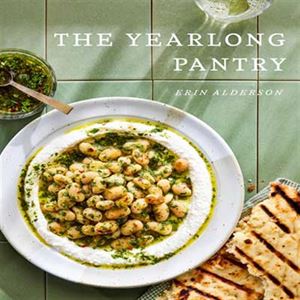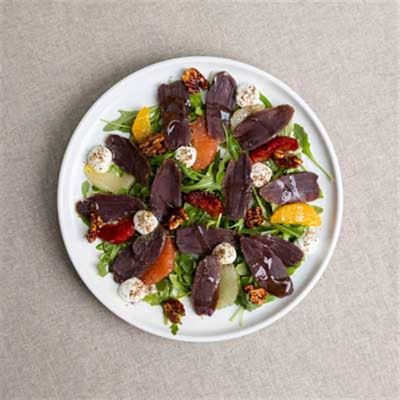
Paneer Bowls with Pistachio Dukkah and Asparagus - Recipe by Erin Alderson
Ingredients
Pistachio dukkah:
1/4 cup (35 g) raw pistachios
1 Tbs white sesame seeds
1 tsp coriander seeds
1/2 tsp cumin seeds
1/4 tsp fennel seeds
1/2 to 1 tsp kosher salt
Asparagus:
2 Tbs olive oil
450 g asparagus, woody ends trimmed
1 Tbs lemon juice
1 tsp lemon zest
1/2 tsp kosher salt
Bowls:
2 Tbs olive oil
340 g paneer, cut into ¼-inch (6 mm) thick slices
1/2 cup (130 g) hummus or similar spread
Cooked emmer, millet, quinoa, or barley
Method
Make the dukkah:
Spread out the pistachios on a small baking sheet. Roast for 10 minutes, until just golden. Transfer the pistachios to a small bowl and let cool. Spread out the sesame seeds, coriander, cumin and fennel on the baking sheet and roast for 5 to 6 minutes, until fragrant.
Combine the roasted pistachios and seeds in a mortar and crush, or pulse in a food processor to crush and combine. Add salt and stir to combine.
Prepare the asparagus:
Heat the oil in a large skillet over medium-high heat. Add the asparagus and sear, flipping once or twice, until browned but still crisp, 2 to 3 minutes. Remove from the skillet, place on a sheet pan and toss with the lemon juice, zest and salt.
To prepare the bowls:
Wipe out the skillet used for the asparagus, add the oil and turn the heat to medium. Add the paneer and fry until golden on both sides, 1 to 2 minutes per side. Transfer to a medium bowl. Sprinkle with three-quarters of the dukkah until coated.
Divide and spread the hummus between four shallow bowls. Add the grains followed by the paneer and asparagus. Sprinkle with the remaining dukkah before serving.
Notes:
Dukkah can be sprinkled on everything: salads, grain bowls, roasted vegetables and savoury yoghurt bowls, to name a few.
Seasonal variations:
I recommend keeping the vegetables light to not overpower the flavour of the dukkah. For the Summer months, go with grilled eggplant or tomato wedges tossed in a bit of olive oil. For the cooler months, I like snap peas and roasted cabbage.









